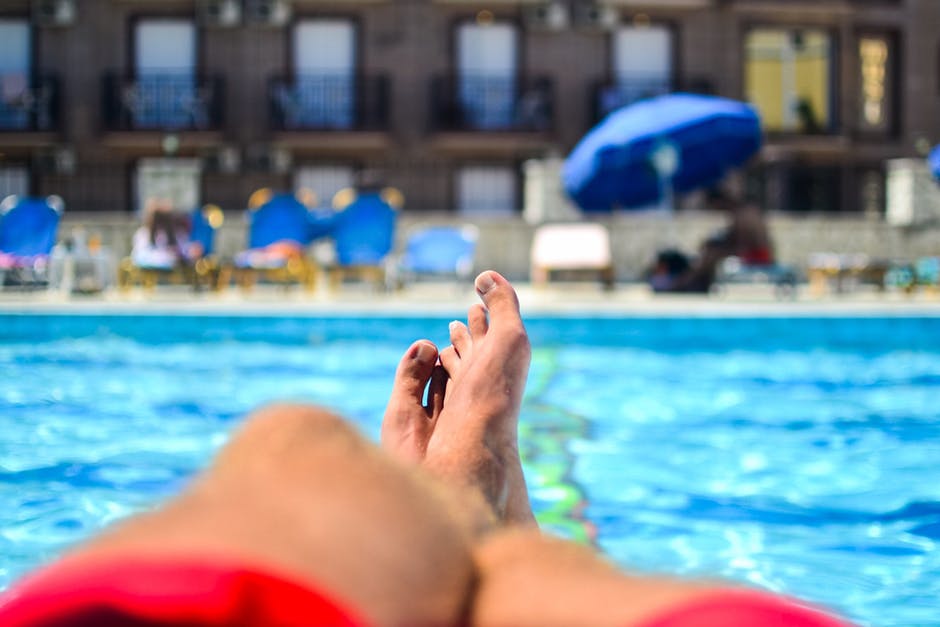Spending the summer pool side can be a great way to have fun, get exercise, and cool down, but remember to stay alert and safe when you and your kids are around water.
According to the CDCP, from 2005-2014, there were an average of 3,536 fatal unintentional drownings (non-boating related) annually in the United States — about ten deaths per day. About one in five drowning deaths are children 14 and younger. For every child who dies from drowning, another five receive emergency department care for nonfatal submersion injuries. More than 50% of drowning victims treated in emergency departments (EDs) require hospitalization or transfer for further care (compared with a hospitalization rate of about 6% for all unintentional injuries).These nonfatal drowning injuries can cause severe brain damage that may result in long-term disabilities such as memory problems, learning disabilities, and permanent loss of basic functioning (e.g., permanent vegetative state).” 1
As the Summer heats up, the pool is the best place to be, just be sure to follow some of the American Red Cross water safety tips to keep your Family Safe!
Water safety guidelines
Keep your family safe by following these guidelines from the American Red Cross,
- Swim in designated areas supervised by lifeguards.
- Always swim with a buddy; do not allow anyone to swim alone. Even at a public pool or a lifeguarded beach, use the buddy system!
- Ensure that everyone in the family learns to swim well.
- Never leave a young child unattended near a body of water, and do not trust a child’s life to another child; teach children to always ask permission to go near water.Have young children or inexperienced swimmers wear life jackets around water, but do not rely on life jackets alone.
- Establish rules for your family and enforce them without fail. For example, set limits based on each person’s ability, do not let anyone play around drains and suction fittings, and do not allow swimmers to hyperventilate before swimming under water or have breath-holding contests.
- Avoid alcohol use. Alcohol impairs judgment, balance and coordination; affects swimming and diving skills.
- Install and use barriers around your home pool or hot tub. Safety covers and pool alarms should be added as additional layers of protection. Ensure that pool barriers enclose the entire pool area, are at least 4-feet high with gates that are self-closing, self-latching and open outward, and away from the pool. The latch should be high enough to be out of a small child’s reach. If you have an above-ground or inflatable pool, remove access ladders and secure the safety cover whenever the pool is not in use.
- Remove any structures that provide access to the pool, such as outdoor furniture, climbable trees, decorative walls and playground equipment. Keep toys that are not in use away from the pool and out of sight. Toys can attract young children to the pool.
- Actively supervise kids whenever around the water—even if lifeguards are present. Do not just drop your kids off at the public pool or leave them at the beach—designate a responsible adult to supervise.Always stay within arm’s reach of young children and avoid distractions when supervising children around water.
- Know What to do in an emergency. If a child is missing, check the water first. Seconds count in preventing death or disability.Know how and when to call 9-1-1 or the local emergency number. If you own a home pool or hot tub, have appropriate equipment, such as reaching or throwing equipment, a cell phone, life jackets and a first aid kit. Enroll in Red Cross home pool safety, water safety, first aid and CPR/AED courses to learn how to prevent and respond to emergencies.
Pool parties
Pool parties are a great way to have fun and celebrate in the summer months, especially for kids. However, this is just the kind of scenario that can lead to fatal distraction. Consider hiring a certified lifeguard for your party, and be certain that everyone will have a good time.


